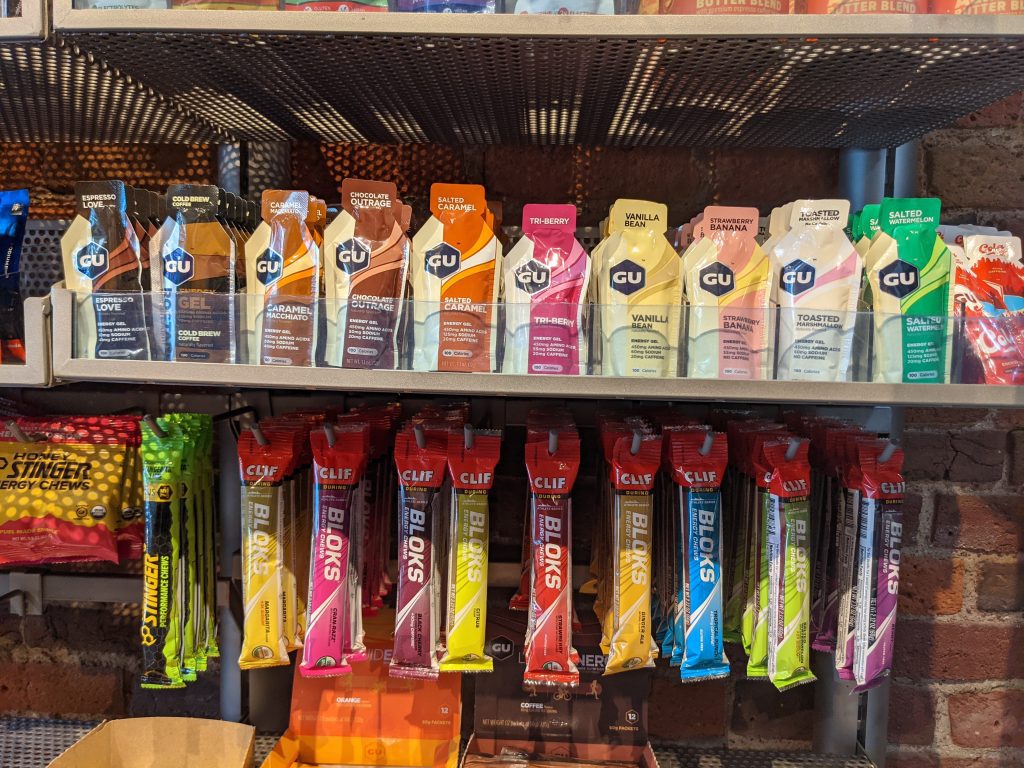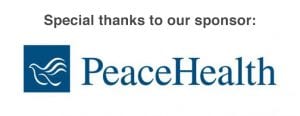With the Bellingham Bay Marathon—and its accompanying races—just weeks away, now’s the time to make sure you’re fueling your body in a way that will have it performing at its peak. This is a process of eating properly through the training period, the days right before the race, the day of the race, and right after the race is complete.
To learn all about the basics of nutrition for running I sat down, virtually, with PeaceHealth Nutrition Program Coordinator Christine Michaelis, a registered dietitian nutritionist. While there are standard ways in which our body processes food that she shared with me, she also pointed out that some experimentation is needed to figure out what works best for a particular individual.
“There’s no meal plan that can be spread across the entire population,” she says. “We’re all very, very unique in our needs and how our body processes nutrients.”
When preparing for a race, Michaelis considers nutrition to be the foundation—that’s where our energy comes from. Approximately 50% of our body’s energy comes from carbohydrates, 30% from fat, and 20% from protein. Since this is how athletes use up energy, it’s important to store and replenish similarly.
Fueling up before the race means eating in a balance that works well for your body—but leaning into the carbs even more. A few days before the race is the time to start carbo-loading. Right before the race, you may want to get some carbs in the body that are low in fiber. Cream rice cereal is a good option and potatoes are very popular, says Michaelis.
During runs, especially long ones, you may need to replenish on the go. In that case, there are many options on the market for giving your body a boost; gels that are easy to carry and eat as well as powders that can be added to water.

Replenishing your body after a workout is a science in itself, but there are some basic guidelines you can follow while your muscles are still spongy.
“About 30 to 45 minutes after a workout is a great time to have some carbohydrates, and typically refined carbohydrates,” Michaelis says. “As a dietitian, we always push for whole foods, but that’s a great time to have more refined carbohydrates to replenish your glycogen stores, your sugar stored in your muscles.”
One big advantage of refined carbohydrates is how easily they can be consumed. Unrefined carbohydrates, like a banana, are easy to eat and digest. Dried fruit, nuts, and trail bars are also good options. The key is to make sure the body, and those muscles, are getting the nutrients they need to replenish and get stronger.
Michaelis notes that many people are concerned about weight gain when taking in more carbohydrates, so it’s important to pay attention to your body if it does start to store them. Look at the types of carbs you’re taking in and where the calories are coming from. For example, too much beer and wine can lead to caloric intake without the benefit of much energy from those calories.
The key piece is paying attention to what is going in your body, and then seeing how your body reacts while ensuring you are fueling adequately.
“When people under-fuel, we know they have more health problems,” says Michaelis. “It’s actually one of the biggest contributors to poor athlete health. There’s more infection, more injuries, and some information says there are more ACL tears when folks are under-fueled.”
While making your nutrition plan, be sure to include hydration. “It’s a process rather than a product to hydrate and needs to be done days before and also before the event,” says Michaelis. For this, she says, it’s really important to experiment. People’s bodies react differently, so having a bunch of liquid in your body right before a race might be good for some, but for others, it may not. The important part is to focus on being hydrated and understand that electrolytes are a critical piece to that process. It is also good to note that caffeine and alcohol can be dehydrating, so take this into consideration leading up to race day.
With your body properly fueled and training underway, you just need to make sure you’ve registered yourself for the correct race. The 5k and 10k races take place on Saturday, September 25th, and the half and full marathons are on Sunday, September 26th. To register and find out more information, go to www.bellinghambaymarathon.org.
"peak" - Google News
September 09, 2021 at 11:42PM
https://ift.tt/3tt87s6
Fuel Your Body Properly for Peak Performance at This Year's Bellingham Bay Marathon - whatcomtalk.com
"peak" - Google News
https://ift.tt/2KZvTqs
https://ift.tt/2Ywz40B
Bagikan Berita Ini

















0 Response to "Fuel Your Body Properly for Peak Performance at This Year's Bellingham Bay Marathon - whatcomtalk.com"
Post a Comment